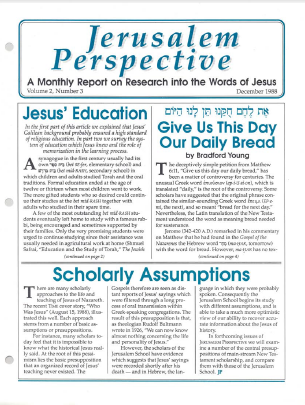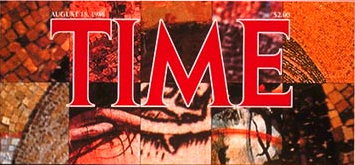Many scholarly approaches to the life and teaching of Jesus of Nazareth exist. The TIME cover story “Who Was Jesus?” (August 15, 1988) illustrated this well. Each approach stems from a different set of basic assumptions or presuppositions. For instance, many scholars today feel that it is impossible to know what the historical Jesus really said. At the root of this pessimism lies the basic presupposition that an organized record of Jesus’ teaching never existed. The Gospels therefore are seen as distant reports of Jesus’ sayings, which were filtered through a long process of oral transmission within Greek-speaking congregations. The result of this presupposition is that, as theologian Rudolf Bultmann stated:
I do indeed think that we can now know almost nothing concerning the life and personality of Jesus, since the early Christian sources show no interest in either, are moreover fragmentary and often legendary; and other sources about Jesus do not exist. (Jesus and the Word [London: Collins Fontana, 1958], 14)
However, evidence exists that suggests that Jesus’ sayings were recorded shortly after his death—and in Hebrew, the language in which his teachings were probably originally transmitted. Consequently, some scholars, especially in Israel, begin an examination of a gospel passage with different assumptions and are able to take a much more optimistic view of our ability to recover accurate information about the Jesus of history.

































































































